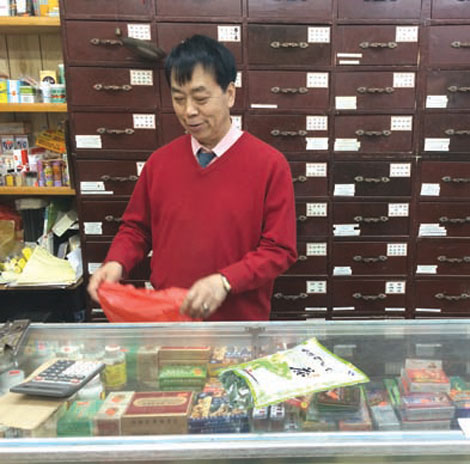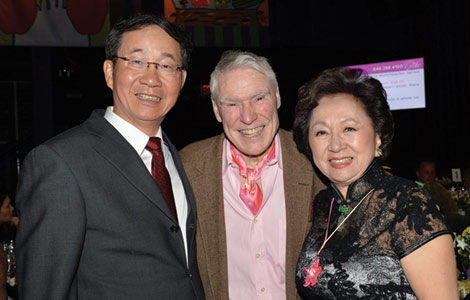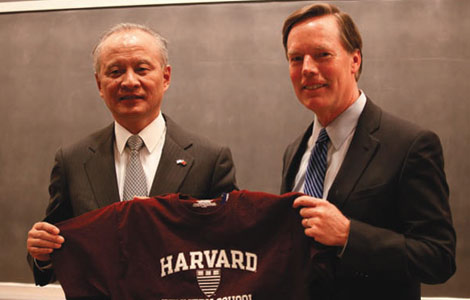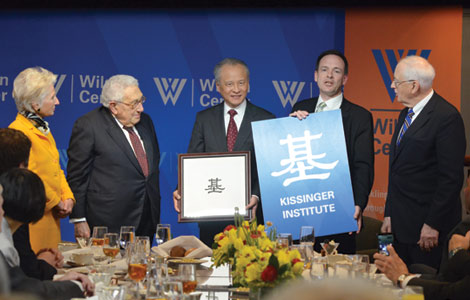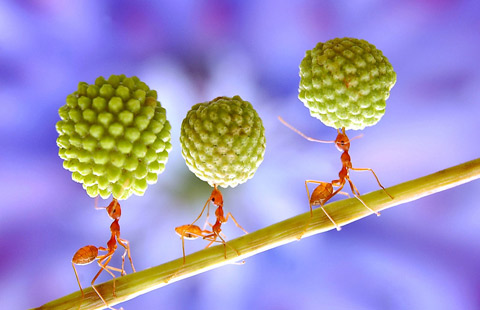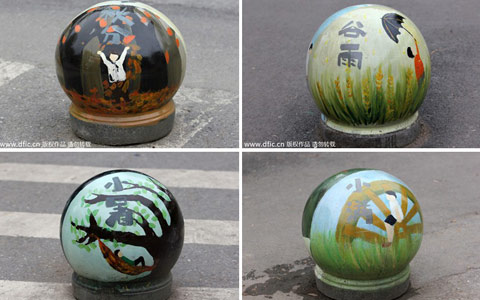Major clinic offers traditional Chinese treatments in house
Updated: 2014-04-30 11:16
By Amy He in New York (China Daily USA)
|
||||||||
|
A Chinese herbalist at his shop in New York. Traditional Chinese medicine is finding a larger audience with patients in the US. The Cleveland Clinic recently opened an herbal clinic to treat patients with Chinese medicine. Amy He / China Daily |
The use of Chinese herbal medication is on the rise in the US, and a major hospital is offering patients treatment with traditional remedies found at Chinese pharmacies in Chinese communities.
The Cleveland Clinic has opened an herbal clinic "driven by patient demand" for alternative medication to common illnesses like seasonal allergies, digestive problems and more serious issues like menopause, chronic nausea and infertility, the hospital said.
"It was really the patient demand that drove the initiation of the clinic. It was very important for us to want our patients to have the correct diagnosis, have quality herbs that we knew were safe and have been appropriately tested for the safety and quality as well," Melissa Young, an integrative medicine specialist at Cleveland Clinic, said in an interview with China Daily. "We wanted to have physician oversight monitoring the patients for safety."
The herbal clinic has been open since January and has one herbalist on staff, though patient hours have expanded since the opening and the clinic will soon start a second day of weekly appointments.
Patients have to be referred to the clinic by their primary care physician to be treated. Young said that the lead acupuncturist at Cleveland Clinic, Jamie Starkey, saw her patients sometimes going out-of-state to get herbal medication, and that's when they knew there was a patient demand for traditional Chinese medication.
"We've had referrals from within the Cleveland Clinic from other physicians and we've had other patients come from outside Cleveland Clinic for the herbal clinic as well," Young said.
The hospital said that herbal therapy is "not replacement therapy for people with chronic conditions, or who are on medicine prescribed by their doctors", but is treatment in addition to whatever doctors are prescribing. Doctors will be charting potential patient side effects, "or even expected side effects", Young said, and lab work will be done to assess patients' kidney and liver functions.
Visits to the Cleveland Clinic herbal center are not covered by US medical insurers. Consultations are $100, with follow-ups costing $60, and a one-month supply of medication costing about $100, according to a Cleveland Clinic spokeswoman.
Cleveland Clinic is not the first US hospital to offer an herbal treatment center. The University of Chicago and Northwestern University both offer similar programs. Young said that Cleveland hopes to "be a model for Chinese herbal clinics and Chinese medicine within an academic hospital center".
Shaobai Wang, a Chinese herbal specialist and an acupuncturist who owns two clinics in New York, said that he has seen a rise in patients seeking herbal treatment over the years.
"Many people would rather look for a natural way to heal these days," he said. "Chinese medicine is considered the 'natural way'. For some people, traditional medicine here is not working for them, or sometimes they prefer natural remedies and they'll try Chinese medicine first."
While there has been an increase in people using traditional Chinese treatment, the effectiveness of Chinese herbs has not been tested as extensively as traditional medicine.
Perry Pong, chief medical officer at Charles B. Wang Community Health Center in New York, said that the doctors at the center generally advise patients to let their physicians know if they are taking traditional Chinese medication.
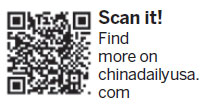
"We don't have any training ourselves with traditional Chinese medicine so we don't do it ourselves, nor recommend for our patients," he said.
Pong said that physicians at the center, which serves the Chinese communities in New York, "can't recommend any mixtures or ways to supplement" herbal medication with traditional medicines.
Traditional Chinese medication companies have been finding more opportunities in markets overseas. Chengdu Diao Pharmaceutical Group, the largest pharmaceutical company in western China, is registering its core product, a Chinese medication that treats heart disease, in the United Kingdom and Germany.
In early April, Jeremy Hunt, Britain's health secretary, said that traditional Chinese medicines could be available on the UK's national healthcare system if they are proven to be beneficial.
amyhe@chinadailyusa.com
(China Daily USA 04/30/2014 page1)
Most Viewed
Editor's Picks

|

|

|

|

|

|
Today's Top News
Adapt to changing demographics or pay the price: expert
Trade leaders do quick tour of West Coast hubs
US considers more easing of visa policy for Chinese
Major clinic offers traditional Chinese treatments in house
US not edged out of Latin America: State
Forum trends: Chinese foods you must not miss
Obama's Asia trip fails to achieve goals, experts say
US sanctions worry oil investors
US Weekly

|

|
